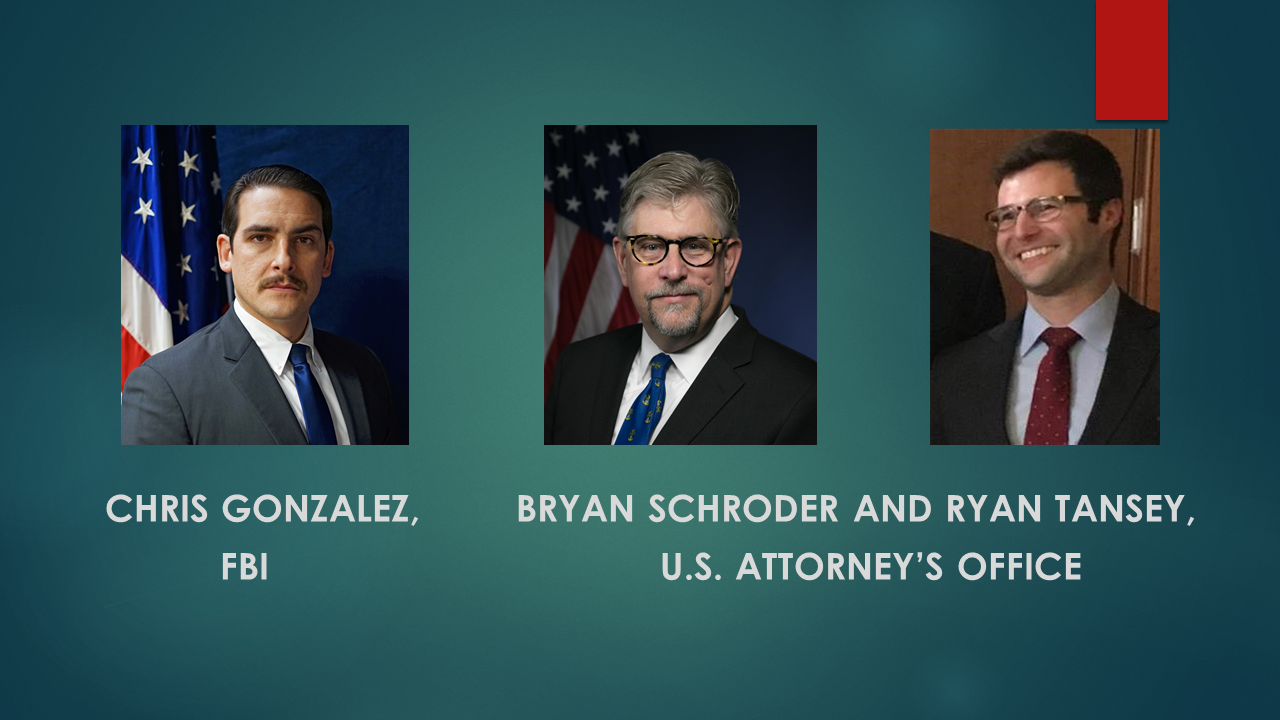AARP Hearing Center

Scammers follow the news, and the pandemic is providing fraudsters with many ways to try to con people out of their money or personal information, or hack into their computers through fake links. Emails and calls about fake COVID-19 tests, cures, or false conditions for receiving economic relief funds… scammers will try using them all as "hooks."
Fortunately, you have AARP, the FBI and the U.S. Attorney’s Office on your side!
AARP Alaska hosted a panel of Alaska-based law enforcement officers to discuss current scams related to COVID-19 they are seeing here, and steps you can take to protect yourself and foil fraudsters’ plans.
• Chris Gonzalez is a special agent with the Federal Bureau of Investigation (FBI) who specializes in white collar crime investigations, specifically health care fraud. He came to Alaska from FBI Headquarters in Washington D.C. where he was a Supervisory Special Agent. In addition to his background in law enforcement he has a Master’s of Science in Economic Crime Management and is a Certified Fraud Examiner.
• Bryan Schroder currently serves as the U.S. attorney for the District of Alaska. Mr. Schroder has served in the U.S. Attorney’s Office for more than 13 years, prosecuting a variety of cases including violent crimes, drug distribution, gun crimes, fraud, tax evasion, environmental crimes, and fisheries and wildlife offenses. Prior to joining the U.S. Department of Justice, he served 24 years in the U.S. Coast Guard and is a retired captain.
• Ryan Tansey is an assistant U.S. attorney in the Criminal Division of the Alaska U.S. Attorney’s Office. He is the District of Alaska coordinator for criminal matters related to fraud concerning the COVID-19 pandemic. Prior to joining the Alaska U.S. Attorney’s Office, Mr. Tansey was a federal prosecutor at the Antitrust Division of the U.S. Department of Justice in Washington, D.C., where he prosecuted complex white collar crimes involving fraud, price fixing and market abuse.
You can listen to the conversation:
- on AARP Alaska’s Facebook page, https://www.facebook.com/aarpak
Wonder if something's a scam? Call AARP’s Fraud Watch Network for help spotting and avoiding fraud, 877-908-3360. You can also call our toll-free fraud helpline if you suspect a loved one might have been a victim of a scam. Act fast -- you may be able to prevent or reduce financial damage.
At aarp.org/fraud you can also sign up for free “watchdog alerts” or review our scam-tracking map.































































